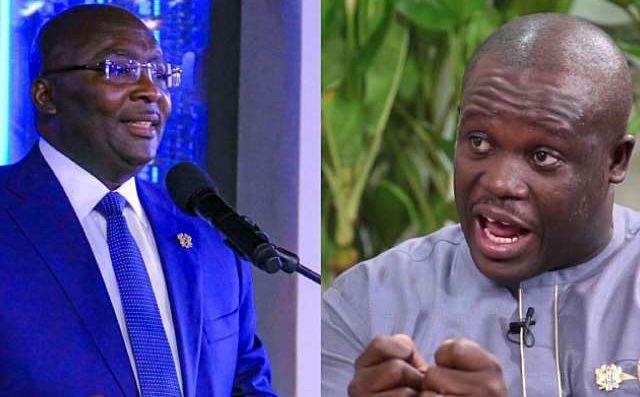The political landscape of Ghana was recently marred by violence during a parliamentary rerun in the Ablekuma North constituency, sparking condemnation from various quarters, most notably from former Vice President Dr. Mahamudu Bawumia. This criticism, however, was met with a sharp retort from Samuel Nartey George, the Member of Parliament for Ningo-Prampram and Minister for Communications, Digital Technology and Innovations. Mr. George accused Dr. Bawumia of hypocrisy, questioning his silence and inaction during a similar incident of electoral violence in the 2019 Ayawaso West Wuogon by-election, where Mr. George himself was a victim of assault. This exchange highlights the ongoing tension and deep-seated political divisions within Ghana, with accusations of selective outrage and impunity fueling the discord.
The Ablekuma North rerun election, held on July 11, 2024, was necessitated by unresolved issues surrounding the verification of results from the initial 2024 general elections. Over 6,000 voters across 19 polling stations participated in the rerun, intended to finally settle the parliamentary seat contest. However, the exercise was significantly disrupted by outbreaks of violence, including physical assaults on voters, journalists, and political party representatives. One particularly disturbing incident involved the assault of a journalist by a police officer, an act captured on video and widely circulated on social media, leading to the officer’s subsequent interdiction. These violent episodes raise serious concerns about the integrity of the electoral process and the safety of participants in Ghana’s democratic exercises.
Dr. Bawumia, the New Patriotic Party’s (NPP) flagbearer for the 2024 elections, strongly condemned the violence, characterizing it as a threat to Ghana’s democracy. He called for a thorough investigation into the incidents and the prosecution of those responsible. Bawumia emphasized the need for accountability to deter future acts of electoral violence, highlighting the assault on NPP supporters, the parliamentary candidate, and a deputy national organizer. His condemnation underscored the gravity of the situation and the potential for such violence to undermine the credibility of Ghana’s democratic institutions.
However, Mr. George’s response to Bawumia’s condemnation brought to the fore the unresolved issue of the 2019 Ayawaso West Wuogon by-election violence. Mr. George, who was assaulted during that incident, questioned Bawumia’s silence at the time, accusing him of selective outrage. This exchange underscores a pattern of unresolved electoral violence and the perception of impunity for perpetrators, particularly when the violence benefits a particular political faction. The lack of accountability for past incidents fuels distrust and contributes to the cycle of violence, further polarizing the political landscape.
The contrasting responses to these incidents of electoral violence expose the deep political divisions in Ghana. While both sides condemn violence in principle, accusations of hypocrisy and selective outrage frequently surface. This partisan approach hinders efforts to address the root causes of electoral violence and implement effective preventative measures. The focus often shifts from seeking justice for victims and ensuring free and fair elections to scoring political points and assigning blame.
Addressing the recurring issue of electoral violence in Ghana requires a multifaceted approach. It necessitates strengthening the capacity of law enforcement agencies to maintain order and protect participants in electoral processes, ensuring impartial investigations and prosecutions of perpetrators regardless of political affiliation, promoting a culture of peace and tolerance among political parties and their supporters, and fostering independent and robust election monitoring mechanisms to deter irregularities and violence. Without concerted efforts to address these underlying issues, Ghana’s democratic progress remains vulnerable to the destabilizing effects of electoral violence.


